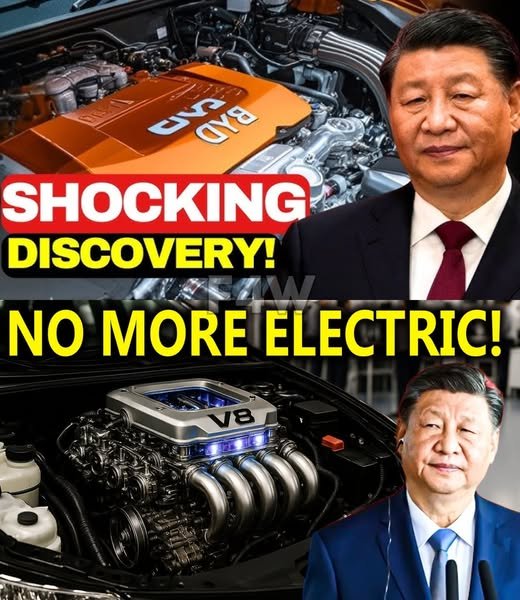In the rapidly evolving world of automotive technology, the electric vehicle (
EV) industry has been hailed as the future of transportation. Governments worldwide have invested billions in EV infrastructure, and companies like Tesla have become household names, symbolizing innovation and sustainability. However, a recent breakthrough from China threatens to upend this narrative entirely. The development of a revolutionary new hybrid engine by Chinese engineers could potentially crush the entire EV industry, raising critical questions about the future of clean transportation and global technological leadership.
The Rise of the Hybrid Engine
China’s new hybrid engine is not just an incremental improvement; it represents a paradigm shift. Unlike traditional hybrids, which combine an internal combustion engine with an electric motor, this new engine reportedly achieves unprecedented fuel efficiency, drastically reduces emissions, and offers performance comparable to, if not better than, pure electric vehicles. Early tests suggest that this engine can deliver longer driving ranges without the need for frequent recharging, a major limitation for current EVs.
Why This Matters
The EV industry has long been criticized for its heavy reliance on lithium-ion batteries, which come with significant environmental and ethical concerns. Mining for lithium, cobalt, and nickel has devastating ecological impacts and often involves exploitative labor practices. Additionally, the disposal and recycling of EV batteries remain problematic, raising questions about their true sustainability. China’s hybrid engine, by reducing dependence on large batteries, could sidestep these issues entirely.
Moreover, the infrastructure demands of EVs-such as the need for widespread charging stations-pose logistical and financial challenges, especially in developing countries. A hybrid engine that offers near-EV performance without these constraints could democratize access to cleaner transportation globally.
The Controversy
Despite these promising advantages, this breakthrough is stirring controversy. EV advocates argue that any technology still reliant on fossil fuels, even minimally, cannot be considered truly green. They warn that embracing hybrid engines could slow the transition to zero-emission vehicles, undermining global climate goals. Critics also question the long-term environmental impact of the new engine’s fuel source and manufacturing process, which remain partially undisclosed.
On the other hand, proponents claim that the hybrid engine is a pragmatic solution to current EV limitations. They argue that the ideal of a fully electric future is still decades away and that hybrid technology can serve as a crucial bridge, reducing emissions today while technology catches up.
Geopolitical Implications
China’s advancement in hybrid technology also has significant geopolitical ramifications. The country has already established dominance in EV battery production and rare earth minerals. If this hybrid engine becomes commercially viable, it could further consolidate China’s leadership in automotive innovation, challenging Western companies and governments. This might trigger a new technological race, with economic and strategic consequences for global power dynamics.
Conclusion
China’s new hybrid engine is more than just a technological innovation; it is a disruptive force that could reshape the automotive industry and the global conversation about sustainable transportation. While it promises to overcome many of the current drawbacks of EVs, it also raises complex ethical, environmental, and geopolitical questions. Whether this engine will “crush” the EV industry or coexist as a complementary technology remains to be seen. What is certain is that the future of mobility is far from settled, and the stakes have never been higher.



